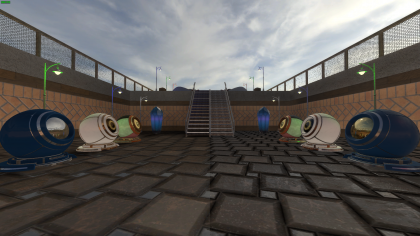Physically Based Rendering: Difference between revisions
SirYodaJedi (talk | contribs) m (Clean up, and add Source 2 info) |
SirYodaJedi (talk | contribs) m (→In Source: better link target) |
||
| Line 6: | Line 6: | ||
{{source|4}} does not ship with PBR by default. However, it is possible to [[Adding PBR to your mod|add PBR shaders]] to a {{src13|4}} mod. | {{source|4}} does not ship with PBR by default. However, it is possible to [[Adding PBR to your mod|add PBR shaders]] to a {{src13|4}} mod. | ||
Additionally, two third-party | Additionally, two third-party [[:Category:Engine branches|Source Engine branches]] support and use PBR: | ||
* {{tfbranch|4}} | * {{tfbranch|4}} | ||
* {{stratabranch|4}} | * {{stratabranch|4}} | ||
Revision as of 12:09, 24 May 2023
Physically based rendering (PBR) is an approach in computer graphics that seeks to render graphics in a way that more accurately models the flow of light in the real world. Many PBR pipelines have the accurate simulation of photorealism as their goal. Feasible and quick approximations of the bidirectional reflectance distribution function and rendering equation are of mathematical importance in this field. Photogrammetry may be used to help discover and encode accurate optical properties of materials. Shaders may be used to implement PBR principles.
In Source
![]() Source does not ship with PBR by default. However, it is possible to add PBR shaders to a
Source does not ship with PBR by default. However, it is possible to add PBR shaders to a ![]() Source 2013 mod.
Source 2013 mod.
Additionally, two third-party Source Engine branches support and use PBR:
In Source 2
The default shaders in ![]() Source 2 utilize PBR.
Source 2 utilize PBR.
